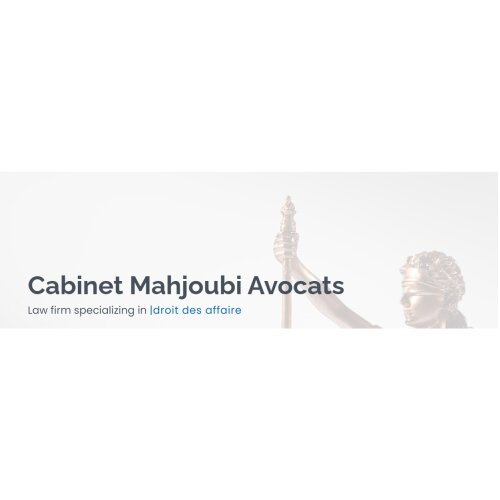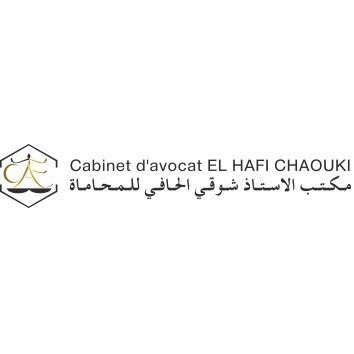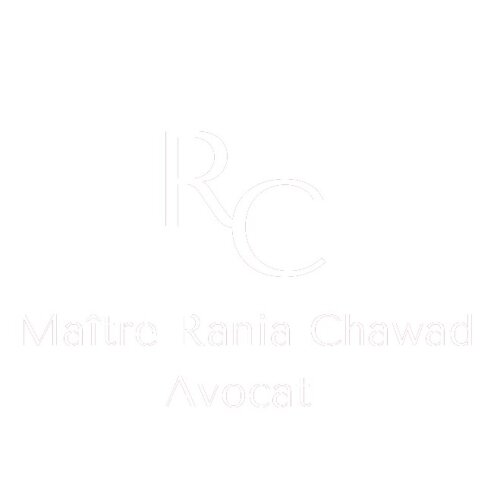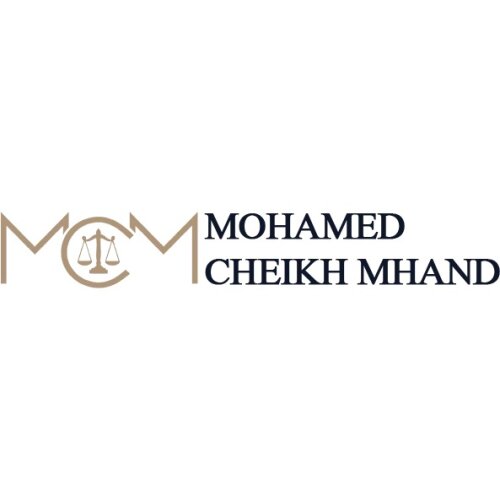Best Energy, Environment & ESG Lawyers in Tangier
Share your needs with us, get contacted by law firms.
Free. Takes 2 min.
List of the best lawyers in Tangier, Morocco
About Energy, Environment & ESG Law in Tangier, Morocco
Energy, Environment, and ESG (Environmental, Social, and Governance) law in Tangier, Morocco is a growing legal field shaped by Morocco's commitment to sustainable development, clean energy, and environmental protection. Tangier, as a dynamic port city and industrial hub, experiences significant investment in renewable energy, infrastructure, and real estate. This creates a complex legal landscape where compliance with environmental regulations and ESG standards is increasingly critical for both local and international businesses. Legal frameworks are influenced by Moroccan national law, international agreements, and industry-specific standards, all aiming to harmonize economic growth with environmental stewardship and responsible business practices.
Why You May Need a Lawyer
There are many situations in Tangier where legal expertise in energy, environment, or ESG is vital:
- Companies planning to develop or expand projects that may affect the environment, such as in real estate, manufacturing, tourism, or renewable energy.
- Investors requiring clarity on ESG standards and how to incorporate them into business operations and reporting.
- Entities facing environmental compliance checks, inspections, or regulatory enforcement actions by the authorities.
- Individuals or communities impacted by industrial activities seeking to assert their environmental rights or compensation for damages.
- Foreign businesses navigating the regulatory frameworks for establishing renewable energy projects or entering partnerships in Tangier.
- Disputes over land use, building permits, or environmental impact assessments connected to local or national regulations.
- Complex transactions such as mergers and acquisitions subject to ESG due diligence requirements.
Local Laws Overview
Key legal aspects of energy, environment, and ESG law in Tangier, Morocco include:
- Environmental Protection Law: Morocco’s Environmental Protection Law sets out requirements for Environmental Impact Assessments (EIAs) before certain projects can commence. Compliance is mandatory for activities that may have significant impacts on natural resources or public health.
- Energy Regulation: The law supports renewable energy initiatives, especially wind and solar. Licensing, grid access, and operational compliance are detailed in specific texts such as Law No. 13-09 related to renewable energies.
- Industrial and Waste Management: Regulations govern waste management, emissions, and hazardous substances. Industrial operators must adhere to national and local environmental standards to avoid sanctions.
- Urban Planning and Land Use: Local authorities enforce land use requirements, including integration of environmental considerations in urban planning processes, especially in areas of rapid development like Tangier.
- ESG Reporting and Compliance: While Morocco is still developing comprehensive ESG regulations, there is increasing demand, especially among international investors, for transparency in corporate sustainability, ethics, and governance practices.
- International Commitments: Morocco upholds commitments under global environmental treaties and agreements, such as the Paris Agreement on climate change.
Frequently Asked Questions
What permits are needed to start a renewable energy project in Tangier?
Renewable energy projects generally require several permits, including environmental impact assessments, construction authorizations, and specific energy production licenses under Law No. 13-09. Consulting a lawyer ensures timely and correct completion of these steps.
Who enforces environmental regulations in Tangier?
Enforcement is shared between the national Ministry of Energy Transition and Sustainable Development, relevant regional and municipal authorities, and sector-specific agencies depending on the nature of the project.
How does Moroccan law address pollution caused by industries?
Law No. 28-00 on waste management and other sector-specific laws establish obligations for industries to minimize pollution, handle waste responsibly, and implement corrective measures in case of contamination.
What is an Environmental Impact Assessment (EIA)?
An EIA is a study required by law to predict and evaluate the likely environmental impacts of a proposed project or development. Approval of the EIA is often required before construction or operational permits are granted.
Are there incentives for adopting ESG practices in Tangier?
Yes, there are incentives and preferential terms available, primarily for investments in renewable energy or sustainable practices. These may include tax benefits, subsidies, or access to green financing, particularly for projects aligning with Morocco’s national strategy.
Can I challenge a development project on environmental grounds?
Individuals and communities have the right to object to a project if it threatens the environment or public health. Legal challenges can be filed through administrative or judicial channels, typically with the support of an attorney.
How do I ensure my company is ESG compliant in Morocco?
Compliance often involves integrating ethical, environmental, and social standards into corporate policies, regular monitoring and reporting, and staying updated with evolving Moroccan and international ESG expectations.
What are common penalties for breaching environmental laws?
Penalties can include fines, suspension of activities, or even closure of non-compliant facilities. Repeat or severe violations may result in criminal liability for individuals responsible.
Are foreign investors subject to different rules?
Foreign investors generally operate under the same laws as local investors but should be particularly mindful of compliance requirements, as regulatory scrutiny can be higher in strategic sectors such as energy and infrastructure.
How long does the permitting process usually take?
The timeline varies with project complexity, scope, and the responsiveness of relevant authorities. Environmental Impact Assessments and associated reviews can take several months, sometimes longer if community consultations or appeals are involved.
Additional Resources
Those seeking legal advice or more information on energy, environment, and ESG matters in Tangier, Morocco, can consult the following organizations:
- Ministry of Energy Transition and Sustainable Development - The central government body for energy and environmental regulatory issues.
- Moroccan Agency for Sustainable Energy (MASEN) - Facilitates renewable energy projects and provides resources on sector regulations.
- National Agency for the Development of Renewable Energy and Energy Efficiency (ADEREE) - Promotes energy efficiency and renewable projects.
- Regional Investment Center of Tangier-Tetouan-Al Hoceima - Assists investors with local administrative processes and regulatory compliance.
- Chamber of Commerce, Industry and Services of Tangier - Offers business support and guidance, including compliance information.
- Local law firms specializing in environmental and energy law are important resources for tailored legal advice and representation.
Next Steps
If you need legal assistance in energy, environment, or ESG matters in Tangier, consider the following steps:
- Identify and clearly define your legal needs, whether it is compliance, project development, dispute resolution, or ESG reporting.
- Gather all relevant documentation, such as permits, contracts, communications with authorities, and corporate policies.
- Schedule a consultation with a lawyer or law firm specializing in energy, environmental, or ESG law in Morocco.
- Ask for an initial assessment of your situation and a clear explanation of your rights, obligations, and possible legal strategies.
- Maintain ongoing communication with your legal counsel and stay proactive about compliance and updates in relevant laws or standards.
Lawzana helps you find the best lawyers and law firms in Tangier through a curated and pre-screened list of qualified legal professionals. Our platform offers rankings and detailed profiles of attorneys and law firms, allowing you to compare based on practice areas, including Energy, Environment & ESG, experience, and client feedback.
Each profile includes a description of the firm's areas of practice, client reviews, team members and partners, year of establishment, spoken languages, office locations, contact information, social media presence, and any published articles or resources. Most firms on our platform speak English and are experienced in both local and international legal matters.
Get a quote from top-rated law firms in Tangier, Morocco — quickly, securely, and without unnecessary hassle.
Disclaimer:
The information provided on this page is for general informational purposes only and does not constitute legal advice. While we strive to ensure the accuracy and relevance of the content, legal information may change over time, and interpretations of the law can vary. You should always consult with a qualified legal professional for advice specific to your situation.
We disclaim all liability for actions taken or not taken based on the content of this page. If you believe any information is incorrect or outdated, please contact us, and we will review and update it where appropriate.
Browse energy, environment & esg law firms by service in Tangier, Morocco
Tangier, Morocco Attorneys in related practice areas.















